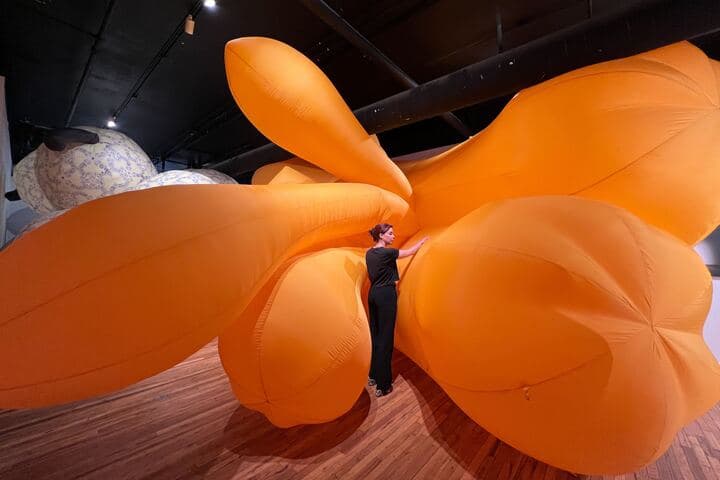A pop-up exhibition called "Taking Up Space," opens at K Contemporary's (1412 Wazee St) Tuesday night. The exhibit, organized to coincide with the inaugural Cities Summit of Americas, will feature the work of eight artists addressing topics of Latin and Caribbean culture related to colonialism, diaspora, inequity and the reclamation of space.
An opening night event is scheduled for Tuesday from 5 p.m. to 7 p.m. The gallery is free, open to the public and will run through Saturday, May 6. Gallery hours are Tuesday through Friday, 12 p.m. to 6 p.m. and Saturday 12 p.m. to 5 p.m.
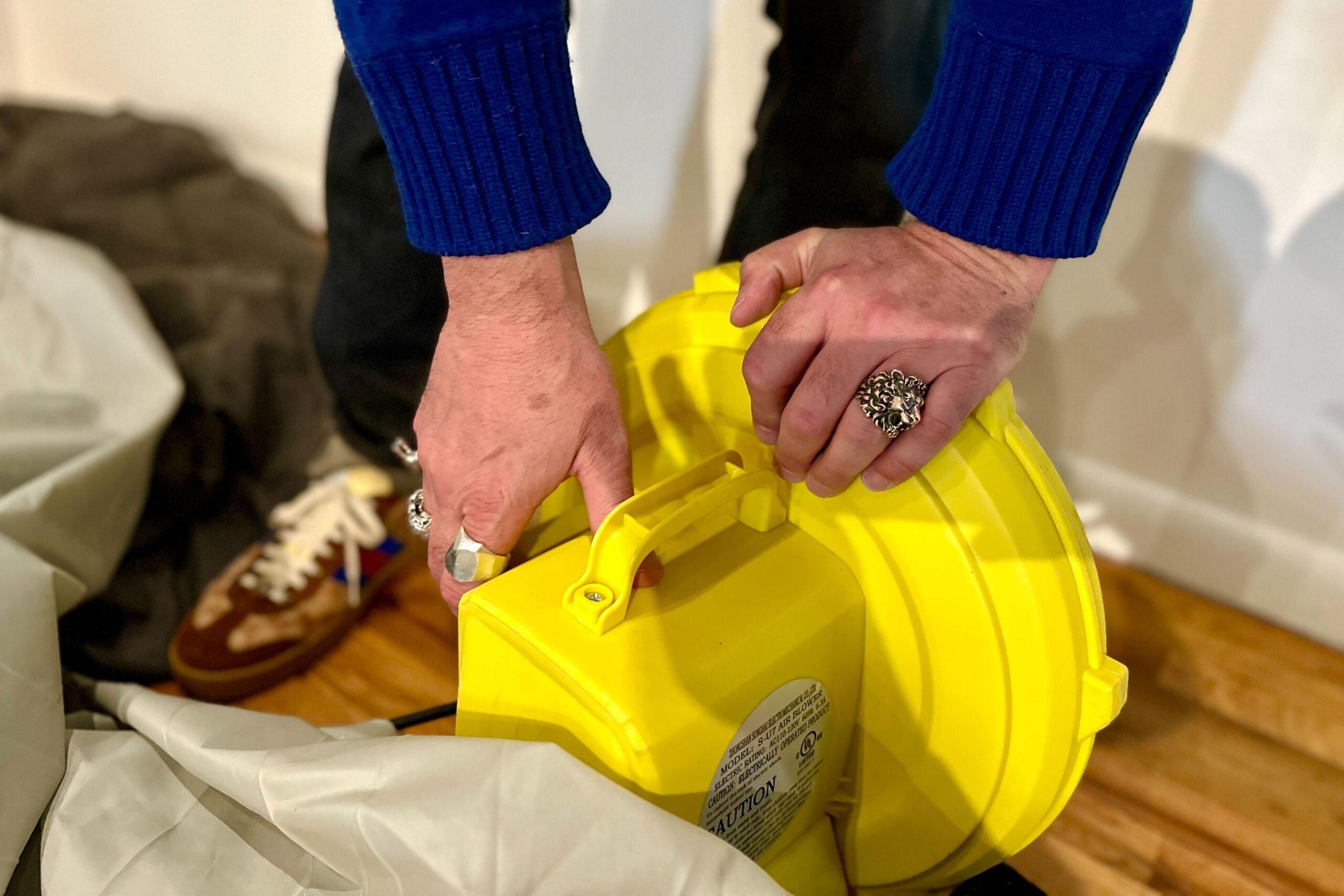
The exhibition will feature "Ikebana" (2019), an inflatable sculpture created by Cuban-born, Mexico City-based artist, Angel Ricardo Ricardo Rios, that swallows the entire gallery space and invites visitors to explore the playful, abstract vegetation.
The floor-to-ceiling and wall-to-wall sculpture seemingly brings the magic of outdoor art indoors. Titled after the centuries-old Japanese art of arranging flowers, or making flowers come alive, the inflatable giant is a playful depiction of botanical vegetation. It alludes to a sense of celebration and play, while also claiming space in the physical gallery, similar to the space that other accompanying artworks do in their observations of diaspora, colonialism and inequity in culture.
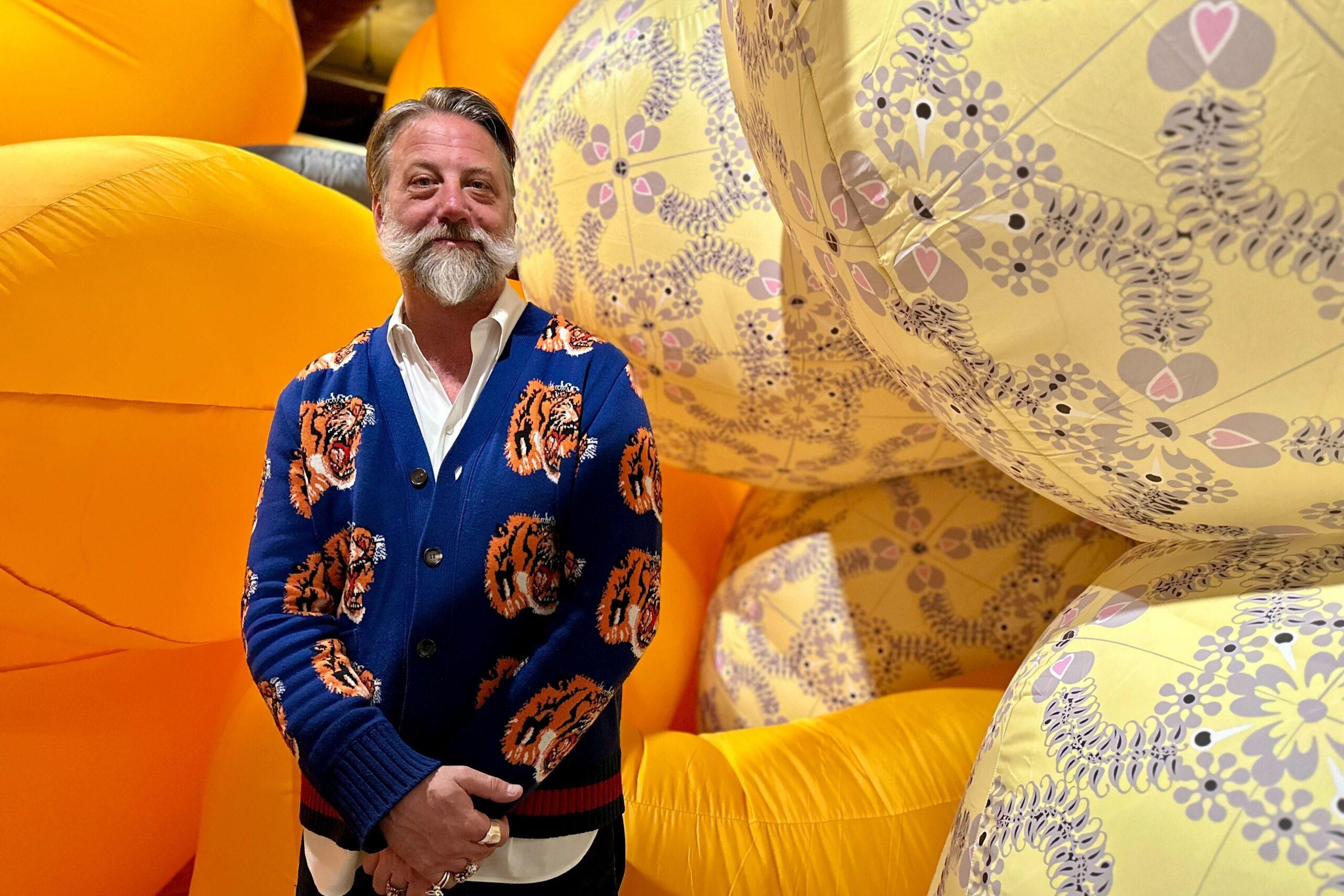
"There's a duality in this show as its visuals simultaneously celebrate culture while voicing pain," said Doug Kacena, owner and curator of K Contemporary. "The program harnesses the power of aesthetics, inviting the viewer into having a layered conversation around difficult subject matter."
Other artists in the exhibition include Marisa Caichiolo (Argentinian), Carlos Martiel (Cuban), Suchitra Mattai (Indo-Caribbean artist, born in British Guyana), Marielle Plaisir (artist of Caribbean South American/French descent), Francisco Souto (Venezuelan), Mario Zoots (U.S. artist of Mexican descent), and Romelle (U.S. artist living in Mexico City).
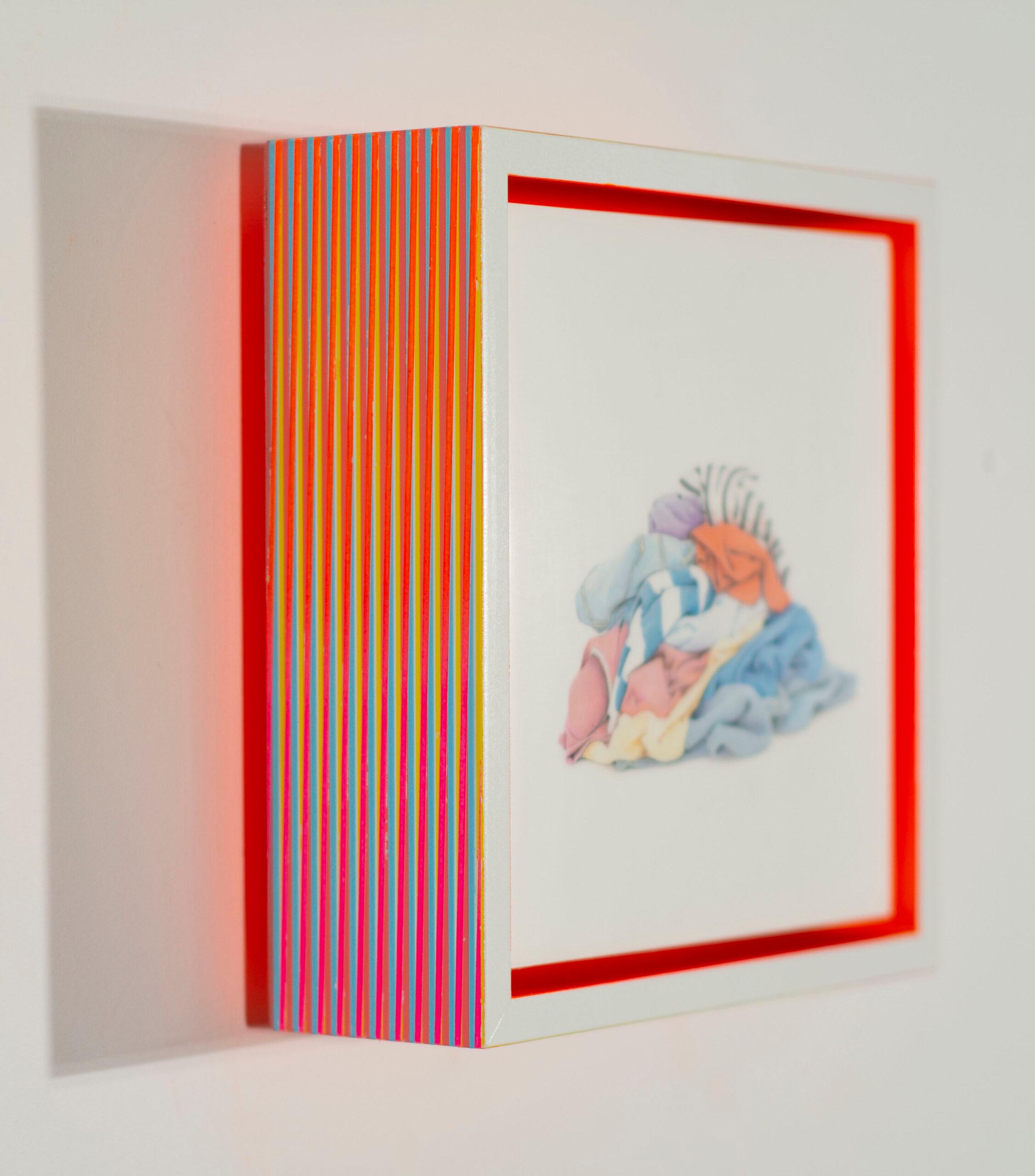
The sides of Souto's triptych drawings called "Diaspora" (2022) are symbolic of walkways inside of Simón Bolívar International Airport, located just outside of the capital city of Caracas, Venezuela. It's intended for those familiar with the same pattern, prevalent in a space that's meant for Venezuelans both leaving and returning home. The Venezuelan artists' exquisite colored-pencil drawings are of three piles of laundry, symbolic of the items left behind by millions of Venezuelan refugees, mounted in small panels that give it an orange neon reflection off the white wall on which it hangs.
Martiel's "Encomienda" (2020) is on the opposite wall, displaying Martiel's nude backside while he kneels on a map of South America, facing the wall of North America's map. The queer and Afro-Latinx Cuban performance and installation artist is known for pushing the limits of performance art to bring into light the horrors of immigration, racism and the abuse of power.
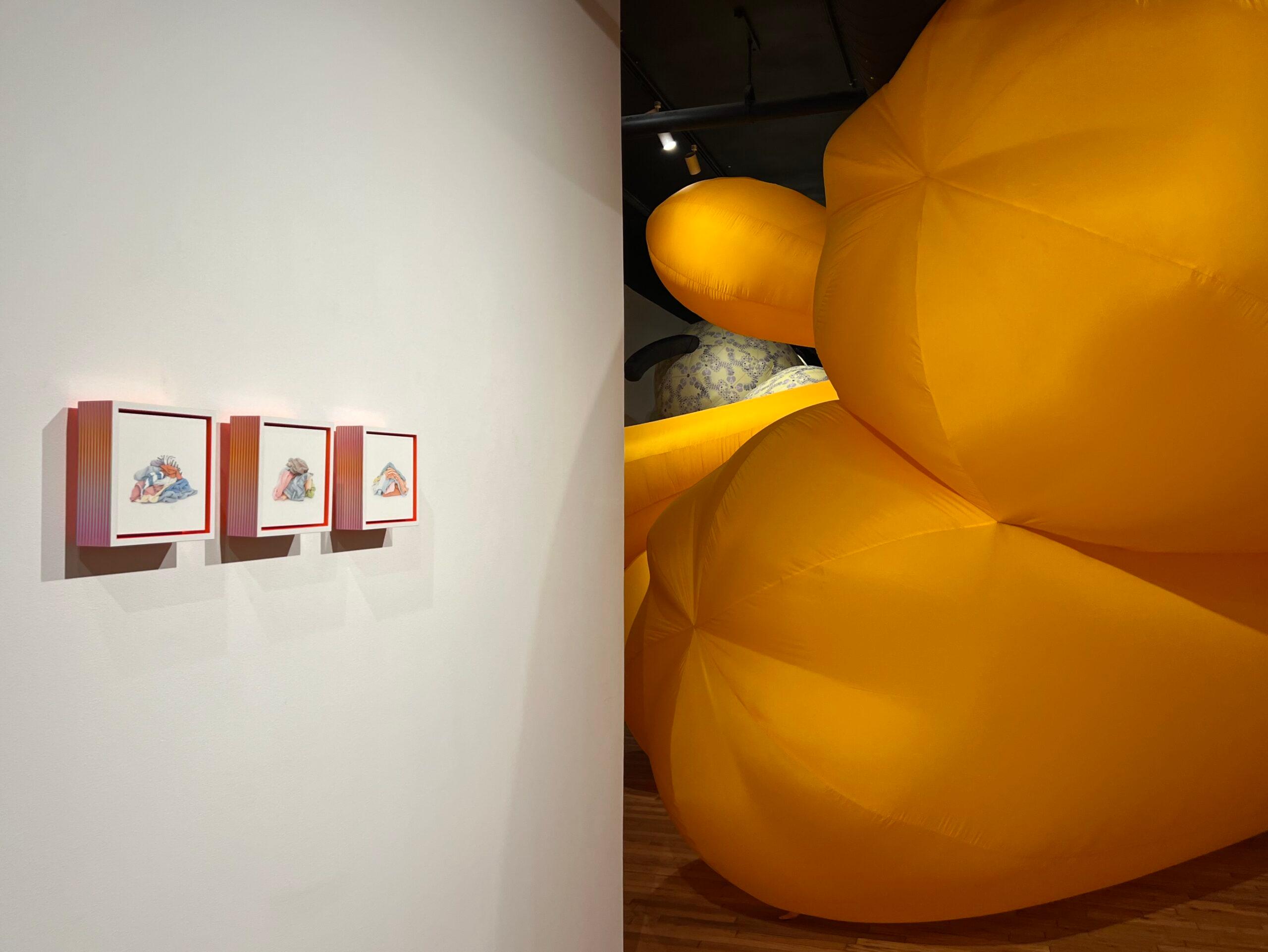
"Art is not there just to have a conversation with it, it is there to transform the people that stand in front of it," Kacena said. "Hopefully a project like this will have a bigger reaction on our community and culture, in this space we are experiencing for ourselves."
Visitors can also see "Pipelines," an outdoor art installation that is about a five-minute walk from K Contemporary, presented during the same time at "Taking Up Space," by the Biennial of the Americas with artistic direction by Black Cube Nomadic Art Museum.
This story has been updated to reflect that the exhibition has been extended to Saturday, May 6.

